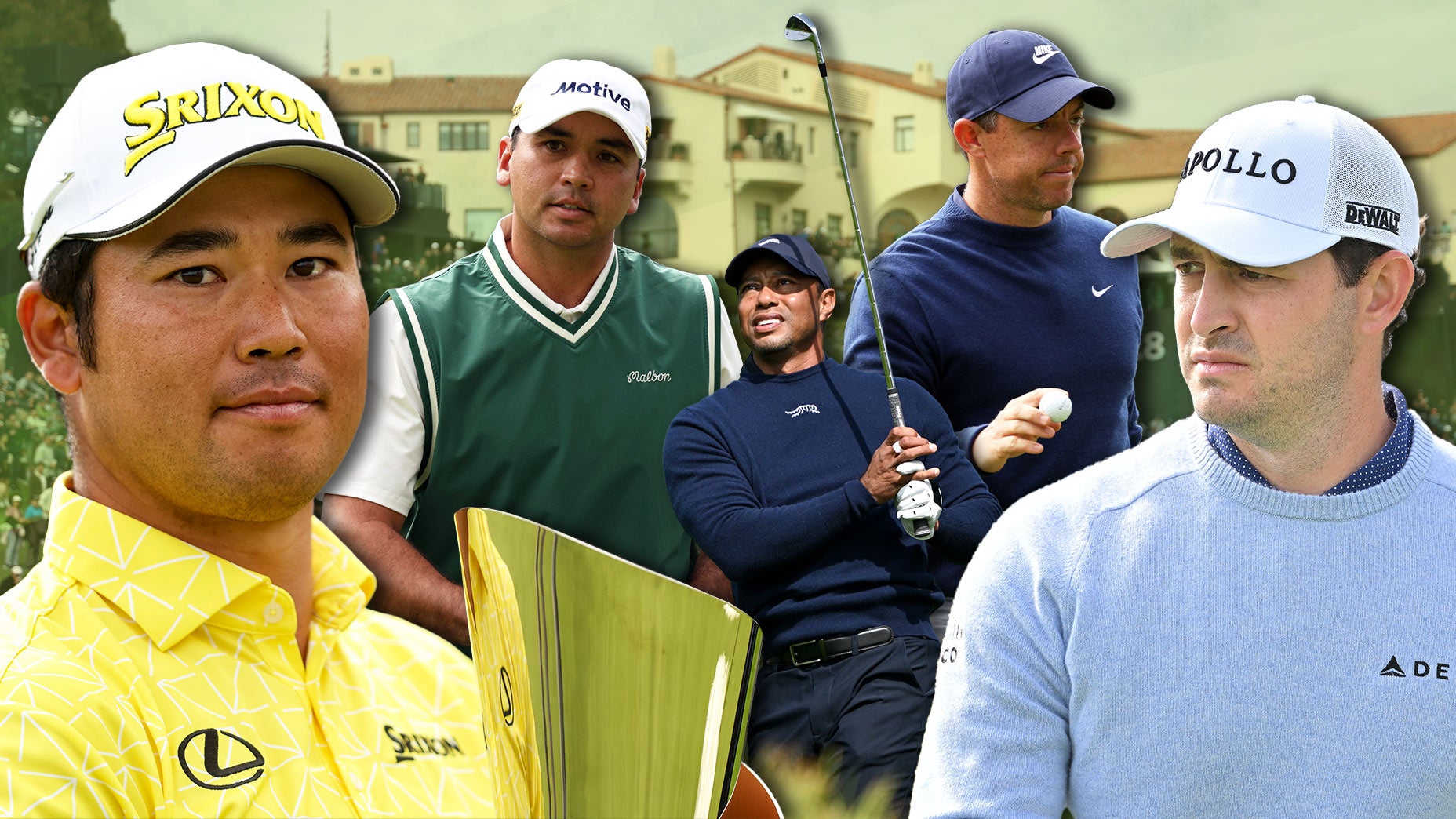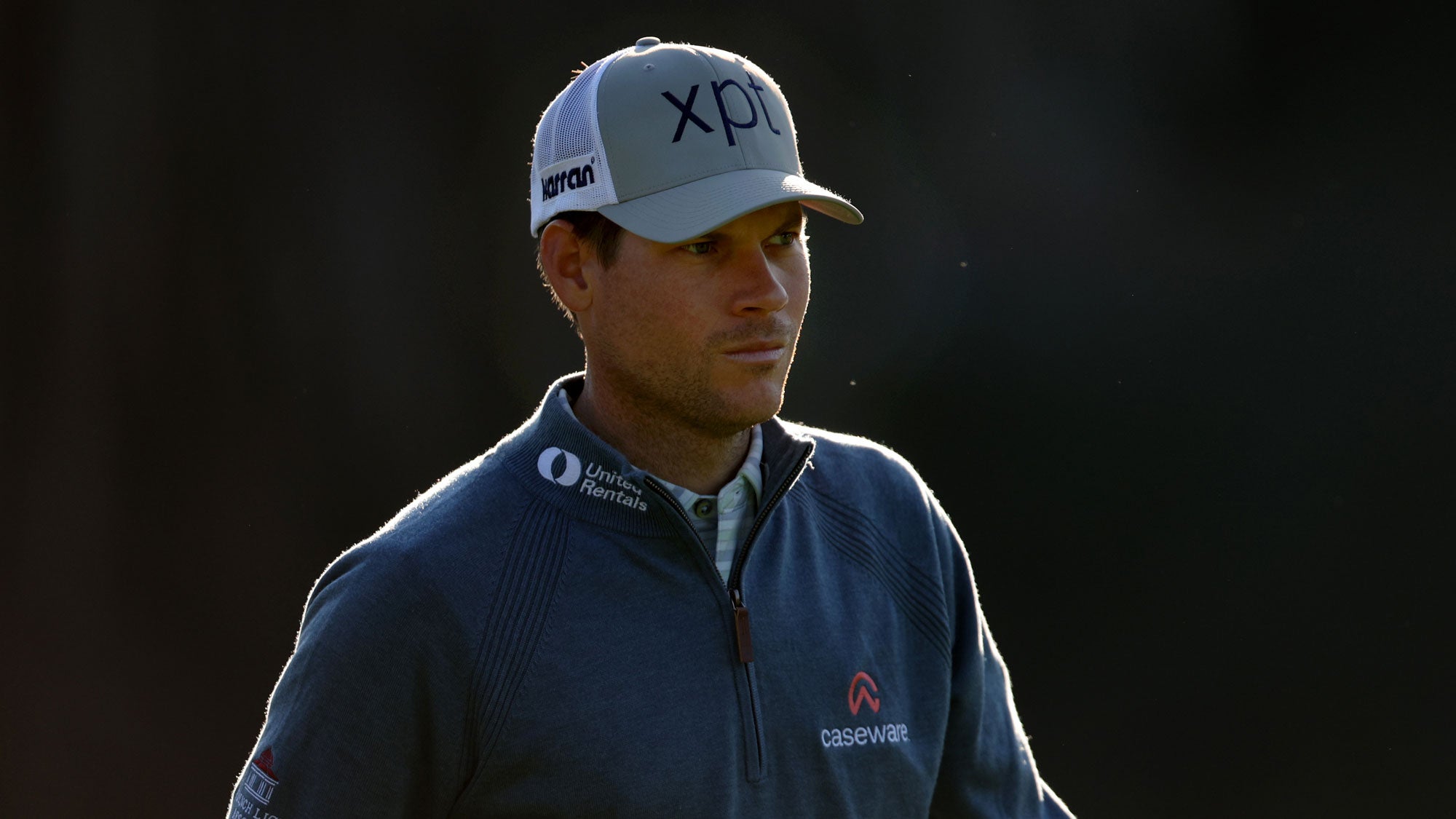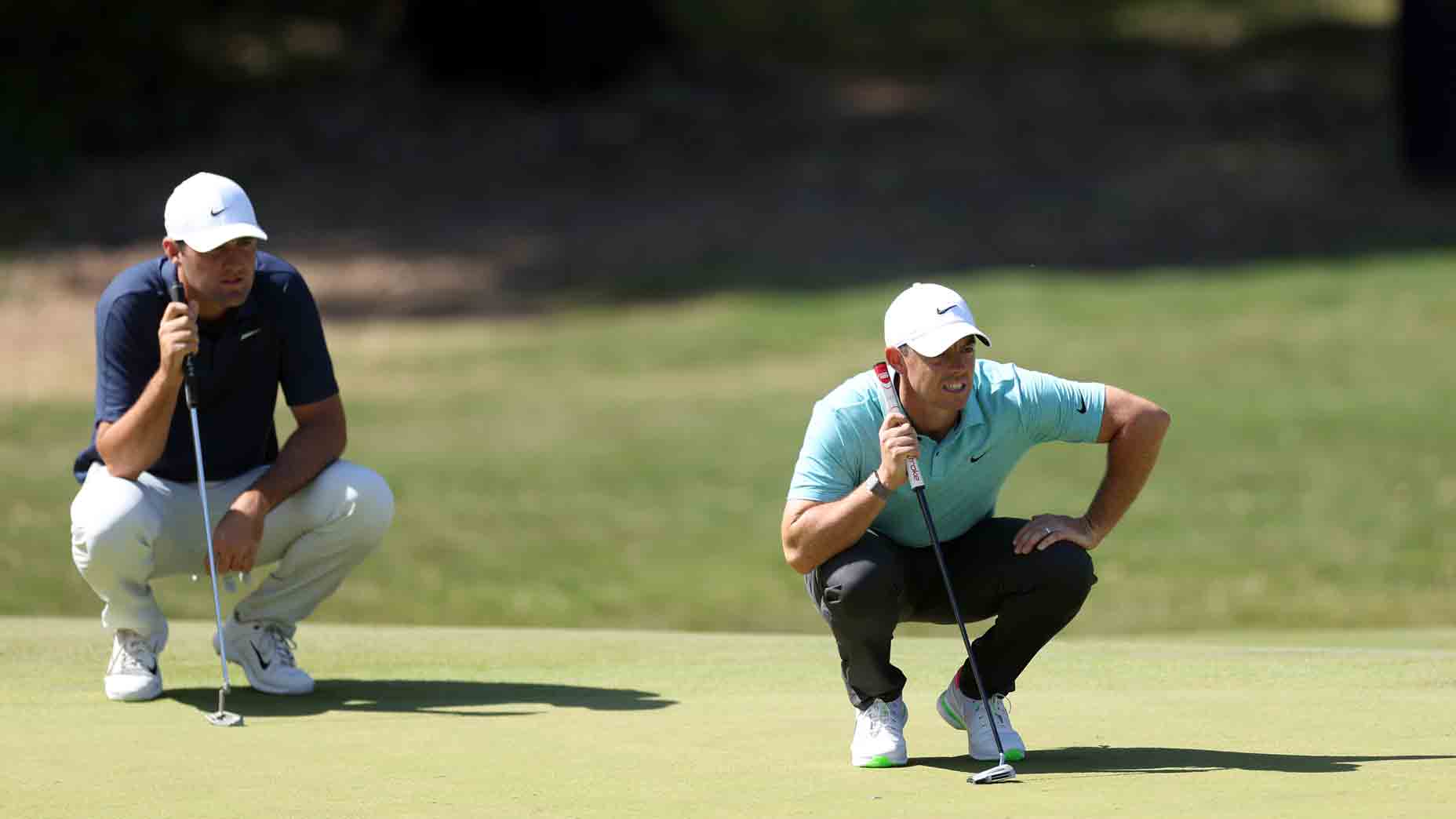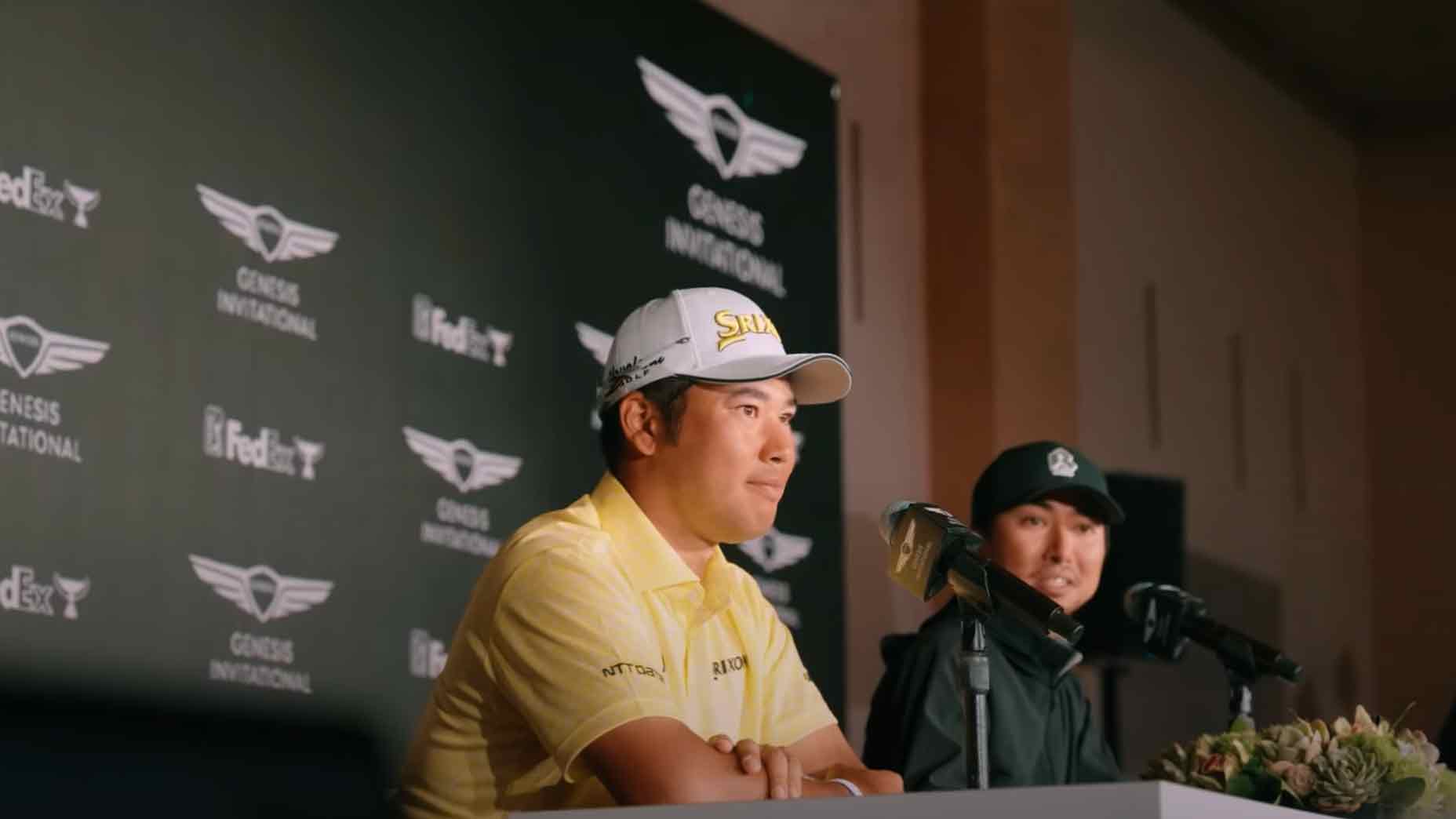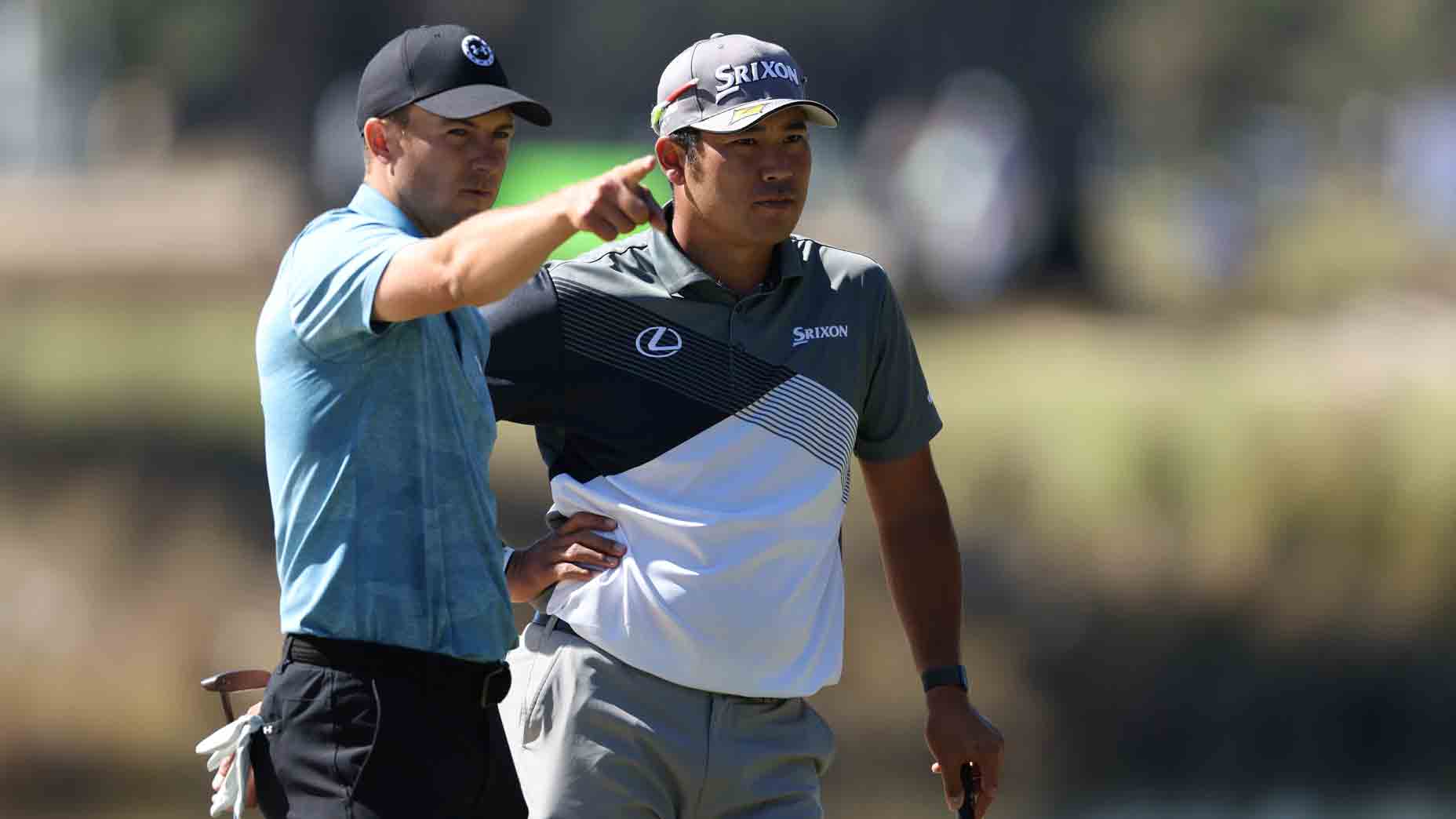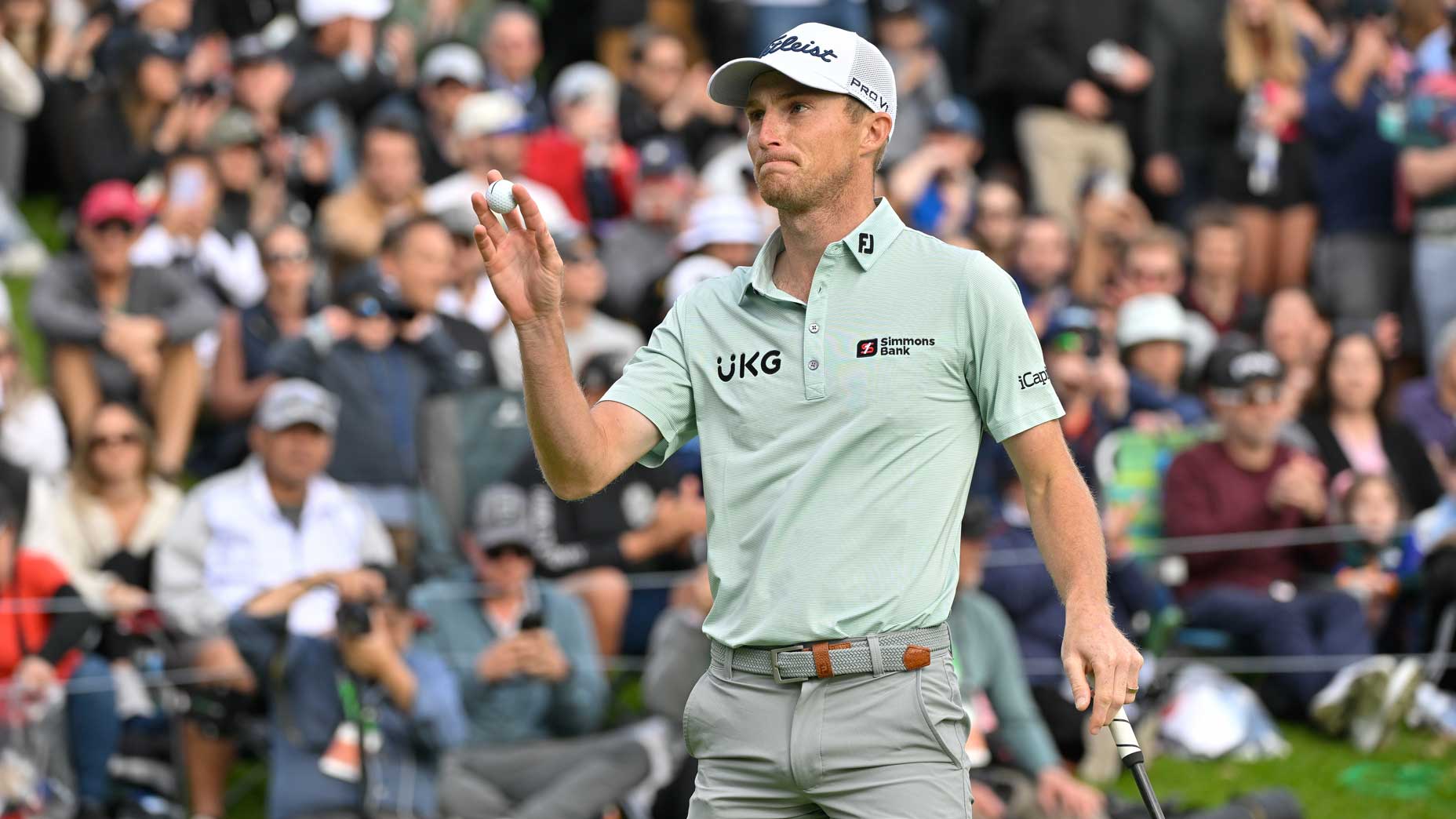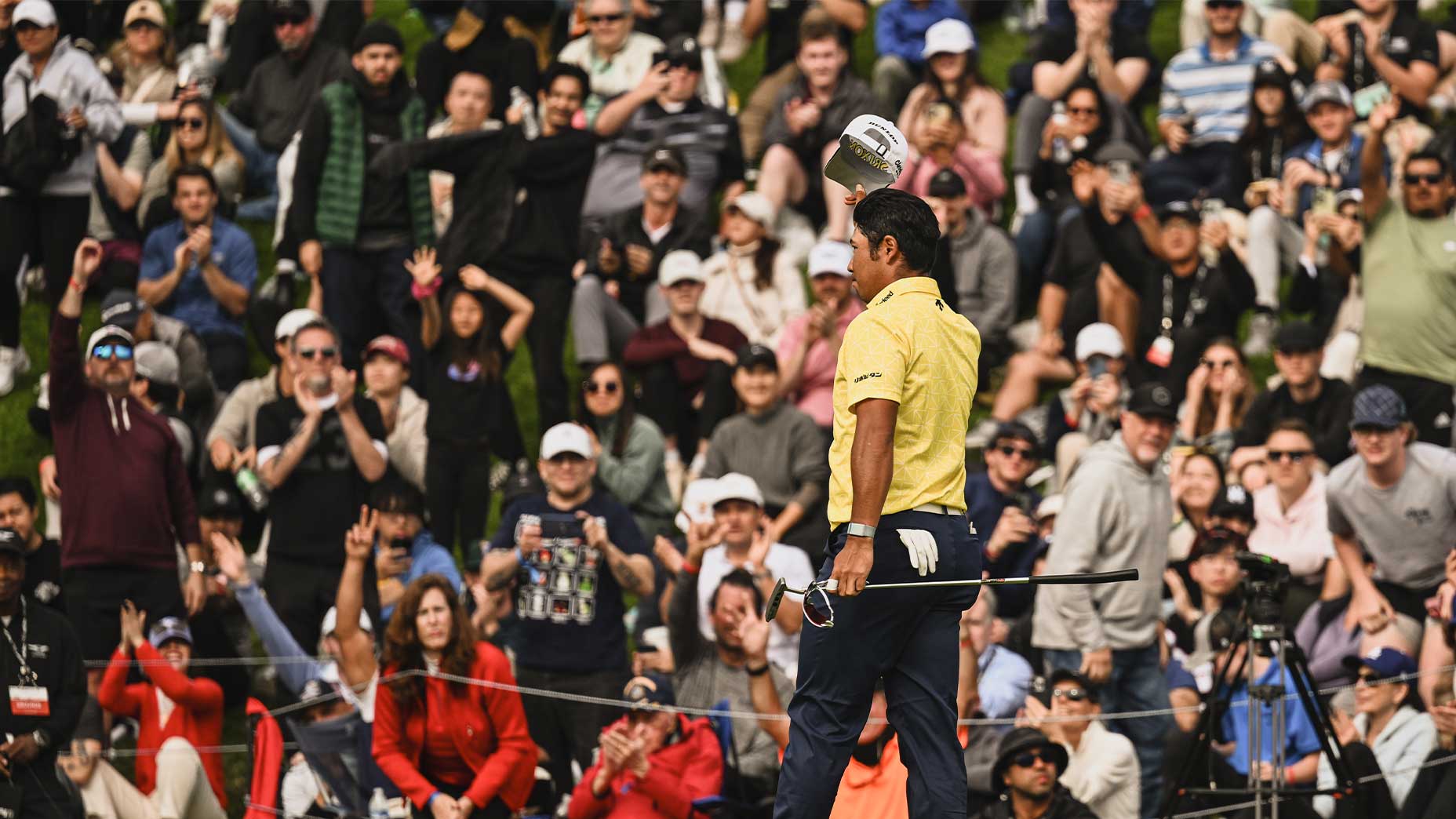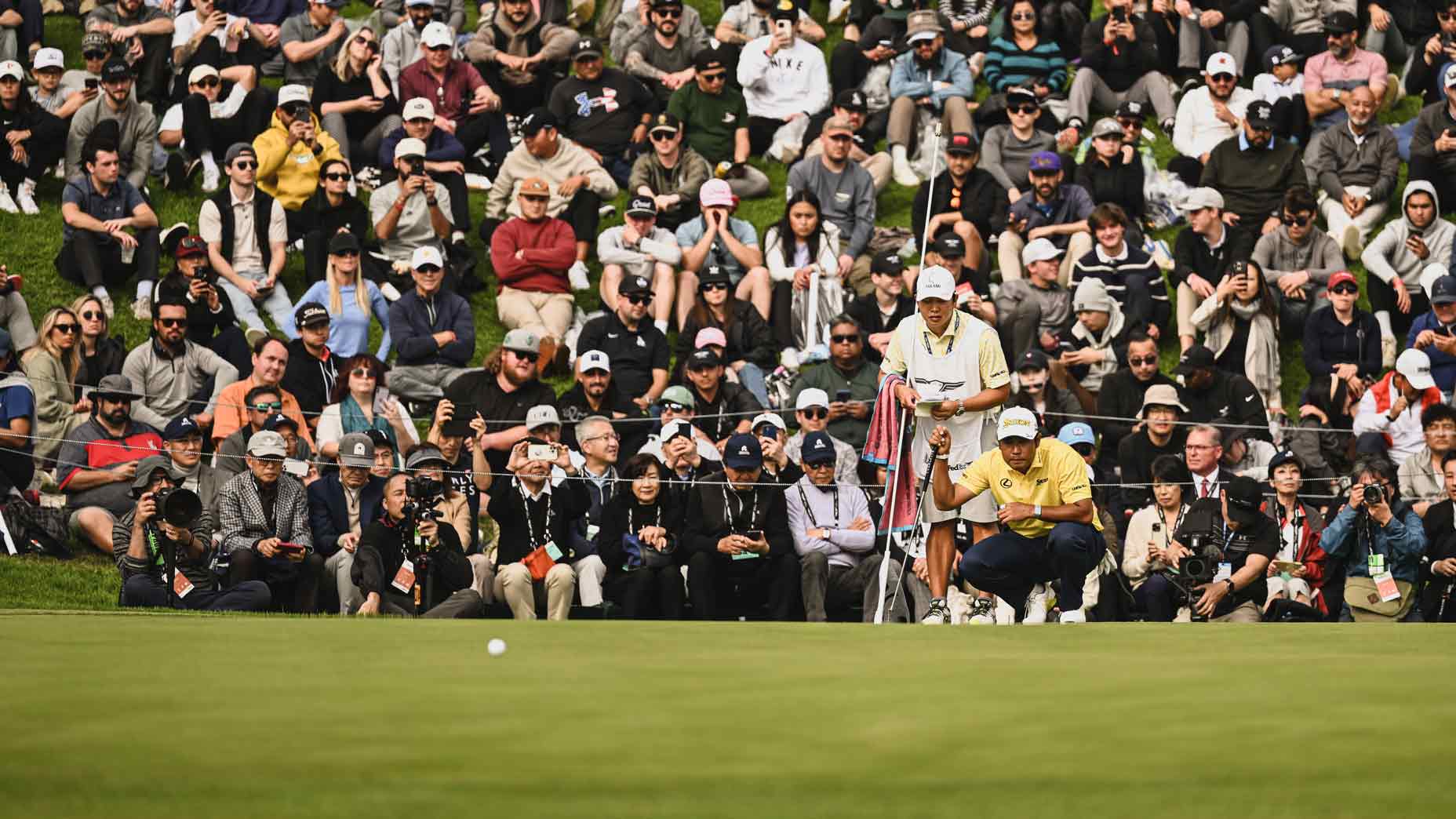Inside Tiger Woods’ blueprint for a massive 2024

Tiger Woods has quietly drawn big plans for the new year. That means on the course, in the boardroom, as a father and more. Here’s what we can expect.
Getty Images
Tiger Woods has quietly drawn big plans for the new year. That means on the course, in the boardroom, as a father and more. Here’s what we can expect.
WHAT WILL 2024 BRING FOR TIGER WOODS?
“I’m curious just like you guys what this is going to look like,” he said in early December at the Hero World Challenge, his first tournament back after his latest lengthy layoff, this one forced by a fusion surgery he underwent after the 2023 Masters. But Woods is hiding something. He isn’t just “curious.” He’s on a mission. He’s been gearing up for a distinctly different, distinctly bigger 2024. Bigger than 2023 or 2022 or 2021. We’ve not yet seen him in action this year. But we know his intentions. He intends to revitalize his golf game. To launch a mysterious new brand. To expand his off-course influence. And to save the PGA Tour. How’s that for a to-do list?
THERE’S TIGER WOODS, DETERMINED GOLFER, sweat on his brow and glint in his eye, standing at the microphone on Sunday at the Hero, thinking about the future. He’s finished the week where he started it — even par — but he’s walked four rounds. That’s 50,000 small steps for Tiger Woods, one giant leap for golfkind. He has good news: He thinks he could play a tournament per month in 2024. That’ll kick off at the Genesis Invitational and continue through major championship season.
“I think that having a couple of weeks off to recover, a week to build up, there’s no reason why I can’t get into that rhythm,” he says. That’s the most optimistic we’ve heard him in several years, and it’s good news for a golf world still eager for the gravity of his presence. When Woods went under the knife — subtalar fusion of the joint below the ankle, to be precise, the latest in at least a dozen surgeries during his career — in the weeks following the ’23 Masters, there was no timetable for, nor even an expectation of, his return. At the time, he sounded like a man prioritizing quality of life over any golfing future. But, it turns out, for Woods, there’s always a golfing future.
At the Hero he’s particularly ecstatic about his driver. “I felt like I had my ball speed up, which was nice, and I was hitting the middle of the face the entire week,” he says. He finishes 18th out of 20. He says that doesn’t tell the whole story. There’s competitive golf in his future.
THERE’S TIGER WOODS, COMPETITIVE FATHER, with daughter Sam, 16, on his bag, and son Charlie, 14, as his teammate, birdie-hunting in mid-December at the PNC Championship in Orlando, everything right in the world. Everything right, that is, except… “Put your phone away,” he says, smiling but serious, when he’s asked to name the toughest lesson to teach a teen. “That’s one of the things that I think all parents struggle with, is most kids don’t look up anymore…. Everyone is looking down. Look around you, the world is so beautiful around you, just look up.” Woods suddenly sounds his age. “But everyone is staring into a screen, and that’s how people view life. It drives me nuts at times because [Charlie’s] always looking down and there’s so many things around you that are so beautiful.” They finish T5, team Tiger-Sam-Charlie. Their Sunday scramble score of 11-under 61 is second best on the day. Woods leaves feeling grateful. “To be able to share it with my family,” he says, “to have both my kids out there the last two days has been so special.”
THERE’S TIGER WOODS, SPORTS DAD, sitting in his car behind the 18th green as the Benjamin School finishes up a match. Coach Toby Harbeck comes over with some good news: Two Benjamin players have just shot 66. Neither of ’em was Charlie, but no matter — Woods all but leaps from his car, hustling on his fused ankle to dole out two enthusiastic bear hugs. “He couldn’t believe it,” Harbeck says later. “I mean, it was crazy. But y’know what? [Tiger] was Dad. And that’s all we ask of [our parents]. Just be Dad. And I think that’s what he likes.” A few weeks later, Harbeck is the one who can’t believe it; his team has just won the state championship, thanks in part to Charlie Woods’ play from the No. 5 spot in the lineup, and now the coach is getting a rib-denting squeeze from the only one of his players’ fathers with 15 majors to his name. “He reached out to bear-hug me,” Harbeck remembers. “I’m telling you, he took the breath out of my chest. That man is strong. Real strong.”

THERE’S TIGER WOODS, GOLFING POLITICIAN, entering the fifth hour of a PGA Tour Policy Board meeting. He’s been in this position since demanding a seat on August 1, just one demand from a list sent by 40-plus players to Tour chief Jay Monahan meant as a check on his authority — and a reminder of Woods’ own. This era of the Tour was built on Woods’ star power, after all. Even with the billions swirling about, the decisions on its next era will run through him too.
“Can’t happen again and won’t happen again,” Woods says. He’s referencing PGA Tour players (himself included) getting blindsided by the framework agreement Monahan and a couple advisors reached with the Saudi Public Investment Fund in early June. He repeats it for emphasis: “Can’t happen again.”
There’s something jarring about arguably the most electric player in golf history volunteering for this unglamorous role, but he’s dived in headfirst. This, too, is his legacy.
“Tiger has stepped up for all of us on Tour,” Rory McIlroy said when Woods signed on. McIlroy was on the board at that point too; he later stepped down, citing time commitments. Those Zoom meetings aren’t for the faint of heart.
“I have so much respect for those guys on the board and the amount of time and effort that they have put in,” adds Justin Thomas at the PNC. Fellow board members describe Woods as a man with a presence, the clear alpha dog even in meetings filled with major champs and big-time businesspeople. His experience, perspective and star power, combined with the fact that he’s a careful listener, adds up to one very powerful board member. Boardmates are also shocked that this is how he’s chosen to spend his time, sticking his nose into the center of contentious, simultaneous and intertwined negotiations with groups of American billionaires and the Saudi Public Investment Fund that will collectively determine pro golf ’s future.
At the Hero, Jordan Spieth is particularly effusive in his praise of Woods’ time and effort. “I know he doesn’t sleep a lot, but he’s spending most of his waking hours thinking about how to better the PGA Tour for the players,” he says. “And he doesn’t have to do that. He could ride off into the sunset if he wants.” Woods takes satisfaction in the endeavor. “I enjoy the fact that I’m able to make an impact differently than just hitting a golf ball,” he says. That’s a theme here.
THERE’S TIGER WOODS, IMPATIENT PATIENT, talking about “game speed” and its effect on his recovery. Woods no longer has the same excruciating ankle pain, he insists. He references the literal, physical grind of “bone on bone,” a phrase that makes you wince. Luckily that’s a thing of the past. But with game speed, other things get sore instead. “My leg, my back, my neck. Just from playing, hitting shots and trying to hold off shots,” he says. That checks out.
Robert Forster, a Santa Monica–based physical therapist who has cared for 54 Olympic medalists and a Wimbledon champion, insists Woods isn’t exempt from the laws of physiology. “He’s borrowing from Peter to pay Paul,” Forster says. When Woods’ ankle can’t rotate like it did, and his foot can’t absorb shock like it should, and his brain continues to make neurological adjustments and compensations, other parts of the body are called into service too. The hips endure more strain, and since the hips are connected to the back, which is linked to the shoulders, which support the neck — you get the point. The implications radiate from head to toe.
When it’s doing its job, the joint between the talus bone and heel — which Woods had fused — rotates side to side, allowing the internal and external rotation that’s central to the swing. After fusion surgery, Woods has lost that side-to-side movement. “If that’s not moving, if the foot is not rotating on the talus,” Forster says, “that movement has to come from somewhere else.” Forster isn’t a doubter. He says that the idea of Woods overcoming injury is the sort of thing that excites him the most. But he’s here to offer a reminder that none of this is forever. Woods is walking better, he’s swinging freer, he’s thinking bigger picture. But his latest journey back is still an experimental journey with an uncertain destination — and a lot of work along the way.
If I can practice, I know I can still do it. I can still hit the golf ball. I can still chip. I can still putt.
THERE’S TIGER WOODS, ULTIMATE COMPETITOR, considering his chances. When he loses his ability to compete, he says, that’ll be it for him on Tour. “There will come a point in time — I haven’t come around to it fully yet — that I won’t be able to win again,” he says. He can’t resist a dad joke. “When that day comes, well, now I can walk. I won’t say run away, but I’m going to walk away.” All he knows for now is that he’s not there yet. “If I can practice, I know I can still do it,” he says. “I can still hit the golf ball. I can still chip. I can still putt. Granted, it’s also putting that all together for 72 holes…”
Woods has summoned belief from nowhere before. He’ll need to do so again. His last impossible comeback feels like yesterday, but his April will mark the fifth anniversary of his 2019 Masters miracle. His most recent full-field top-20 finish came in January 2020, and he withdrew on the weekend in two of his three most recent major starts. Still, he can’t shake the idea that there’s enough there for another run.
THERE’S 48-YEAR-OLD TIGER WOODS, thinking about time. He’s been asked a question about Rafael Nadal, who’s also preparing himself for a 2024 comeback. But Woods’ answer hits home harder when you realize he’s talking about himself. “What Rafa’s done is extraordinary,” he says. “I mean, he won the Australian Open on a broken foot. The guy’s beyond tough and beyond competitive. He knows that Father Time is here. Every athlete faces it. Although some sports it happens faster than others, and, unfortunately, just like every sport, you get aged out.”
Again, change “Australian Open on a broken foot” to “U.S. Open on a broken leg” and you’ve got Woods’ story. As for how he likes to see aging legends perceived?
“I don’t want to see [Nadal] go,” Woods says. “I never wanted to see [Roger Federer] go, but that’s what happened. We should all enjoy watching him compete and watching him play and what he’s meant to the game, what he’s meant to all of us, just to see the passion of how he plays and why he plays.” It’s a reminder to golf fans everywhere: Enjoy watching Tiger compete. Reflect on what he’s meant to the game. When you watch him, see the passion of how he plays and why he plays; why he’s in the gym and in the boardroom and on the course and on your TV screens; why he’s fighting hard against the inevitable wears of age and time and compounded injury.
Woods likes to joke about all the equipment in his body these days. Rods and plates and pins and screws. The more he’s made of metal, it seems, the more human he’s become. But he’s still Tiger Woods. New year, new him.
Again.
Additional reporting by Alan Bastable and Josh Sens.
Dylan welcomes your feedback at dylan_dethier@golf.com.


